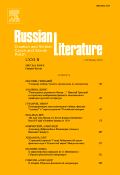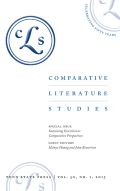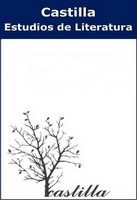
RUSSIAN LITERATURE
metrics 2024
Exploring the Depths of Russian Literary Heritage
Introduction
RUSSIAN LITERATURE is a premier academic journal published by ELSEVIER, dedicated to advancing the study of Russian literary traditions, critical theory, and cultural contexts. With an ISSN of 0304-3479 and an E-ISSN of 1878-3678, this journal has firmly established itself as a vital resource in the field, achieving a commendable Q1 ranking in Literature and Literary Theory as of 2023. The journal benefits from a strong impact factor and ranks #178 out of 1106 in the Scopus database, placing it in the 83rd percentile of arts and humanities research. RUSSIAN LITERATURE covers an extensive timeline, converging years from 1971 to 1974 and from 1976 to 2023, reflecting its rich academic lineage. Although not an open-access publication, the journal remains influential among scholars, professionals, and students seeking in-depth analyses and critical insights into Russian literature and literary theory. Its commitment to scholarly rigor makes it an essential read for anyone engaging with the complexities of literary studies.
Metrics 2024
 0.28
0.28 0.30
0.30 0.30
0.30 8
8Metrics History
Rank 2024
Scopus
JCI (Web Of Science)
Quartile History
Similar Journals

RIVISTA DI LETTERATURE MODERNE E COMPARATE
Advancing Scholarship in Modern and Comparative LiteratureRIVISTA DI LETTERATURE MODERNE E COMPARATE is a distinguished academic journal published by PACINI EDITORE in Italy, dedicated to the exploration of modern and comparative literature. With an ISSN of 0391-2108, this journal serves as an essential resource for scholars and practitioners engaged in the ever-evolving fields of literature and literary theory. Although the journal currently falls into the Q4 quartile category for 2023, it aims to foster a rich dialogue among researchers, practitioners, and students by publishing innovative and diverse perspectives on contemporary literary issues. The journal is indexed in Scopus, ranking #1045 out of 1106 in the subject area, indicating a niche, yet critical contribution to the literature landscape. Covering converged years from 2002 to 2013 and 2017 to 2024, RIVISTA DI LETTERATURE MODERNE E COMPARATE is vital for those looking to delve deeper into literary analytic methodology and comparative studies, providing an avenue for both new research and established discourse.

Sibirskii Filologicheskii Zhurnal
Fostering Academic Excellence in Philological ResearchSibirskii Filologicheskii Zhurnal is a prestigious academic journal published by the Russian Academy of Sciences, Institute of Cytology and Genetics. With ISSN 1813-7083, it is dedicated to advancing research in the fields of Cultural Studies, Linguistics and Language, and Literature and Literary Theory, and has achieved notable rankings, including Q2 in Cultural Studies and Linguistics, and Q1 in Literature for 2023. The journal provides a platform for scholarly discourse, contributing valuable insights to its fields with an evolving scope that spans from 2018 to 2024. Though not an open-access journal, Sibirskii Filologicheskii Zhurnal serves as a vital resource for researchers, professionals, and students in the Russian Federation and beyond, fostering a deeper understanding of linguistic and literary phenomena. Its commitment to high-quality content makes it an essential addition to any academic's library.

Mundo Eslavo-Journal of Slavic Studies
Bridging Literature, History, and LinguisticsMundo Eslavo - Journal of Slavic Studies is a prominent journal published by UNIV GRANADA, EDITORIAL, dedicated to advancing the field of Slavic studies through open access scholarship since 2004. With an ISSN of 1579-8372 and an E-ISSN of 2255-517X, the journal aims to provide a platform for interdisciplinary research, covering a wide array of topics including literature, culture, history, and linguistics of Slavic regions. Based in Granada, Spain, this journal is crucial for researchers, professionals, and students seeking to explore and contribute to the understanding of Slavic heritage and contemporary issues. With a commitment to accessibility and scholarly rigor, Mundo Eslavo invites submissions that push the boundaries of conventional discourse in Slavic studies, ensuring that critical insights and diverse perspectives reach a global audience.

TWENTIETH CENTURY LITERATURE
Diving Deep into Literary Trends and TheoriesTWENTIETH CENTURY LITERATURE is a renowned journal published by Hofstra University Press, dedicated to the exploration and analysis of literature and literary theory from the twentieth century. With a focus on both established and emerging voices in the field, this journal serves as an essential resource for researchers, professionals, and students who seek to deepen their understanding of significant literary movements and trends. The journal holds an impressive Q2 category ranking in Literature and Literary Theory as of 2023, showcasing its impact and relevance in the academic community. Though not an open access journal, it provides valuable insights and scholarly discussions that contribute to ongoing debates in literature studies. Covering a converged period from 2002 to 2014 and continuing from 2016 to 2024, TWENTIETH CENTURY LITERATURE positions itself as a pivotal platform for thought-provoking literature critique and scholarly inquiry, making it an indispensable addition to any academic library or personal collection.

JOURNAL OF MODERN LITERATURE
Connecting Literature and Culture in the Modern EraJOURNAL OF MODERN LITERATURE, published by Indiana University Press, is a distinguished peer-reviewed journal that delves into critical examinations of modern literary texts and theories. Since its inception, the journal has served as a vital platform for scholars dedicated to the exploration of contemporary literature, making significant contributions to the discourse within the field. With an impressive ranking of Q2 in the Literature and Literary Theory category as of 2023, it positions itself among the top-tier journals in its domain, reflecting its strong impact within academic circles. This journal not only fosters scholarly dialogue but also embraces innovative approaches to literary criticism, ensuring relevance in today’s dynamic cultural landscape. Researchers, professionals, and students will find a rich repository of articles that engage with various modern literary paradigms, enhancing their understanding and appreciation of the intricate relationships between literature and broader socio-cultural contexts. Though it does not operate under an open access model, the journal's extensive reach through its digital ISSN (1529-1464) and print ISSN (0022-281X) allows for valuable insights to be disseminated to the appropriate audiences.

TEXT & KRITIK
Exploring the depths of literature and theory.TEXT & KRITIK, an esteemed academic journal published by EDITION TEXT KRITIK GMBH in Germany, serves as a critical platform for advancing scholarship in the fields of literature and literary theory. With an ISSN of 0040-5329, this publication aims to foster rigorous discourse and stimulate intellectual inquiry from 2009 to 2023, reflecting the evolving landscape of literary studies. Although categorized in the fourth quartile (Q4) in the 2023 measure of literature and literary theory, TEXT & KRITIK consistently engages with a diverse array of literary perspectives and methodologies, addressing both historical texts and contemporary literature. Researchers, professionals, and students alike are encouraged to explore this resource to deepen their understanding of critical texts and theoretical frameworks. While it does not currently operate on an open access model, its curated content remains a vital resource for anyone dedicated to exploring the nuances of literary analysis and criticism.

GIORNALE STORICO DELLA LETTERATURA ITALIANA
Fostering Insight into Italy's Literary JourneyGIORNALE STORICO DELLA LETTERATURA ITALIANA is a distinguished journal published by CASA EDITRICE LOESCHER that serves as a critical platform for the exploration and analysis of Italian literary history. With an ISSN of 0017-0496, this journal encompasses a broad spectrum of topics within the field of literature and literary theory, contributing to the academic dialogue surrounding Italy's rich literary heritage. Although it is not openly accessible and has discontinued its coverage in Scopus since 2021, the journal has established its presence in the scholarly community, being ranked in the 18th percentile within the literature and literary theory category. Its historical significance and focus on literature position it as an essential resource for researchers, professionals, and students keen on deepening their understanding of Italian literature and its impact on cultural studies. By engaging with the contents of this journal, readers will gain valuable insights into the evolution of literary discourses and the role of Italian literature in contemporary society.

ItinerArios-Revista de Literatura
Illuminating the Depths of Literary DiscourseItinerArios-Revista de Literatura is a distinguished academic journal published by Universidade Estadual Paulista (UNESP), located in the vibrant city of Araraquara, Brazil. With a commitment to exploring the depths of literary analysis and theory, this journal serves as a crucial platform for scholars, researchers, and students to disseminate their work in the field of literature. Though the journal does not currently offer open access, it boasts a comprehensive focus on various literary traditions, critical interpretations, and emerging trends within the literary landscape. The ISSN for the print edition is 0103-815X, ensuring its recognition in the academic community. By providing a valuable forum for innovative research and engaging discussions, ItinerArios plays an essential role in enriching the discourse in the realm of literary studies, appealing to professionals and enthusiasts alike who are eager to contribute to and engage with contemporary literary scholarship.

COMPARATIVE LITERATURE STUDIES
Connecting Cultures through Critical AnalysisComparative Literature Studies is a distinguished journal published by Penn State University Press, focusing on the diverse and evolving field of comparative literature. With an ISSN of 0010-4132 and an E-ISSN of 1528-4212, this quarterly journal has been a critical platform for scholarly dialogue and interdisciplinary research since its inception in 2000. The journal proudly ranks in the Q3 category for Cultural Studies and Q2 for Literature and Literary Theory (2023), showcasing its significant impact within these domains. Notably, it ranks #214/1106 in Literature and Literary Theory according to Scopus, placing it in the 80th percentile—highlighting its relevance and quality in the global academic landscape. Despite its traditional subscription model, the journal remains a crucial resource for researchers, professionals, and students keen on exploring the intersections of cultures, texts, and histories. By publishing cutting-edge research and critical essays, Comparative Literature Studies aims to expand the horizons of literary analysis and foster innovative scholarly exchanges.

Castilla-Estudios de Literatura
Connecting Scholars Through Open Access Literature.Castilla-Estudios de Literatura is an esteemed academic journal published by EDICIONES UNIV VALLADOLID, dedicated to the exploration and analysis of literature and literary theory. With an ISSN of 1989-7383 and an E-ISSN of 1989-7383, this journal has provided Open Access content since 2009, ensuring wide accessibility to its scholarly materials. Hailing from Spain, specifically based at JUAN MAMBRILLA 14, VALLADOLID 47003, SPAIN, it has become a notable platform for researchers and scholars, achieving a respectable Q3 ranking in the 2023 category of Literature and Literary Theory, along with a Scopus rank of #637 out of 1106 in the Arts and Humanities. Covering a converging period from 2013 to 2024, this journal embraces a diverse range of literary analysis, aiming to foster critical discourse among academics, professionals, and students globally. Its commitment to high-quality research and open dissemination makes it an invaluable resource for those engaged in the literary field.